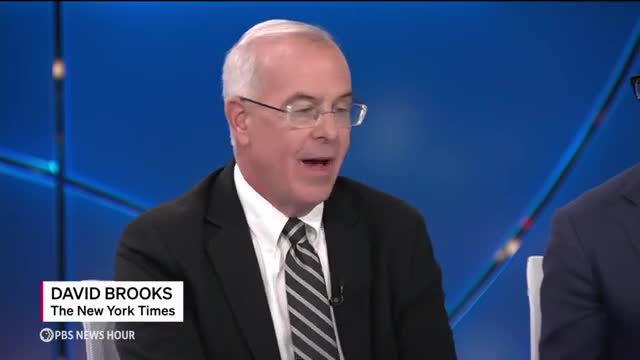Misinformation Crisis Threatens Lives Amid Hurricane Recovery
This article was created by AI summarizing key points discussed. AI makes mistakes, so for full details and context, please refer to the video of the full meeting. Please report any errors so we can fix them. Report an error »

In a recent discussion, prominent commentators addressed the ongoing recovery efforts in Florida and the southeastern United States following two devastating hurricanes. They highlighted the significant challenges posed by a surge of misinformation and disinformation, particularly from political figures such as Donald Trump and Marjorie Taylor Greene. Greene's controversial claim that the federal government can control the weather was specifically noted as part of a broader trend of misleading narratives that undermine public trust and safety.
The commentators emphasized that this misinformation crisis transcends mere inaccuracies, labeling it as a \"cultural assault\" on institutions and individuals grounded in reality. They expressed concern over the impact of these lies, particularly on vulnerable communities grappling with the aftermath of natural disasters. The discussion pointed out that such falsehoods not only jeopardize lives but also exacerbate community divisions during critical recovery periods.
While acknowledging the efforts of Republican governors in Florida and Georgia to counter misinformation and recognize federal assistance, the commentators urged for a stronger, unified response from Republican leaders. They called for accountability and a more vocal rejection of disinformation within the party, stressing the importance of confronting those perpetuating these harmful narratives.
The conversation also touched on the broader implications of the current political climate, suggesting that the rise of figures like Trump reflects a troubling trend where a lack of moral compass can lead to success in both business and politics. This sentiment raises concerns about the lessons being imparted to future generations regarding ethics and accountability in leadership.
The commentators emphasized that this misinformation crisis transcends mere inaccuracies, labeling it as a \"cultural assault\" on institutions and individuals grounded in reality. They expressed concern over the impact of these lies, particularly on vulnerable communities grappling with the aftermath of natural disasters. The discussion pointed out that such falsehoods not only jeopardize lives but also exacerbate community divisions during critical recovery periods.
While acknowledging the efforts of Republican governors in Florida and Georgia to counter misinformation and recognize federal assistance, the commentators urged for a stronger, unified response from Republican leaders. They called for accountability and a more vocal rejection of disinformation within the party, stressing the importance of confronting those perpetuating these harmful narratives.
The conversation also touched on the broader implications of the current political climate, suggesting that the rise of figures like Trump reflects a troubling trend where a lack of moral compass can lead to success in both business and politics. This sentiment raises concerns about the lessons being imparted to future generations regarding ethics and accountability in leadership.
View full meeting
This article is based on a recent meeting—watch the full video and explore the complete transcript for deeper insights into the discussion.
View full meeting